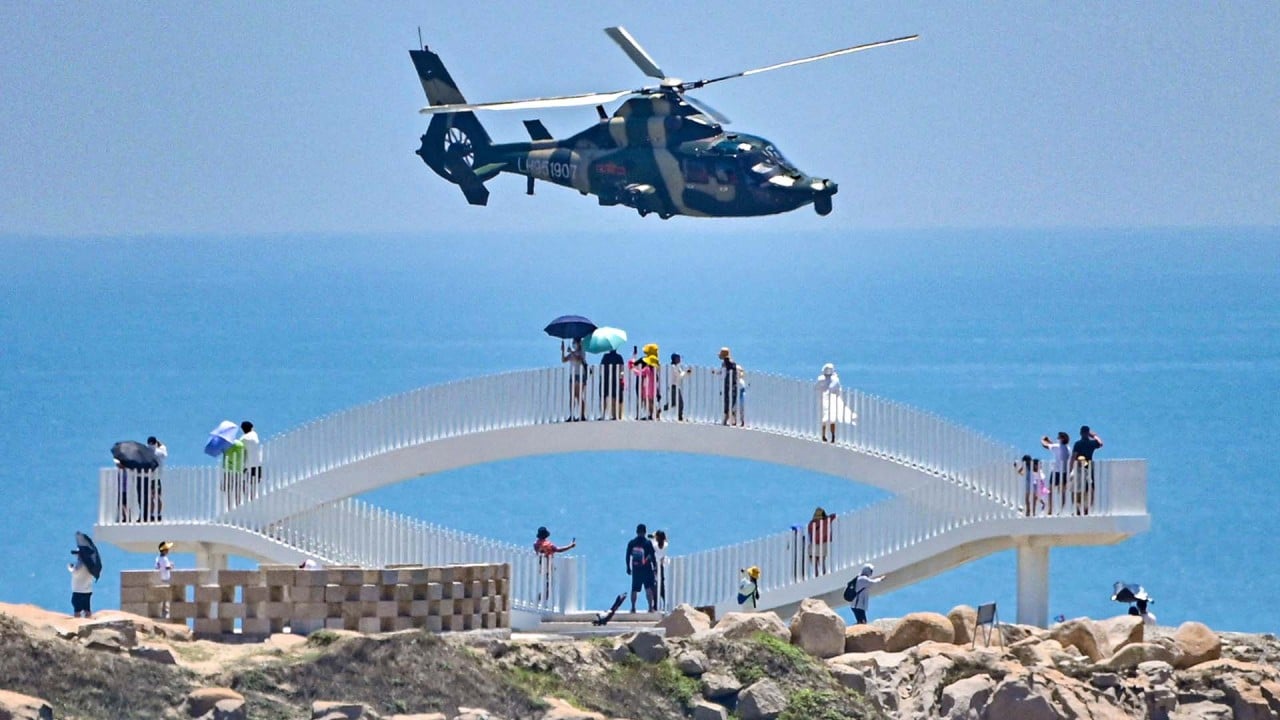
Pelosi’s Taiwan visit should prompt Beijing to start reunification process
- The US House speaker’s visit to Taiwan shattered the trust between China and the US, but Beijing has avoided falling into the trap of a long drawn out war
- The PLA’s drills show a complete air and sea blockade of Taiwan is possible, while Beijing could also consider using economic weapons against US pressure
But they all fell on deaf ears. When Pelosi landed in Taipei, the already shaken trust between China and the US was completely shattered because the US had unilaterally changed the status quo of Taiwan. The sobering lesson for all Chinese people from this is that we should not have any illusions about American intentions as the US has backtracked on its historical promises on Taiwan.
Beijing’s actions are not only a response to the backtracking US and a warning to “Taiwan independence” forces, but also a response to the Chinese people, many of whom feel angry and even humiliated by the de facto American support for Taiwan independence.
Pelosi’s Taiwan visit has been to many Chinese what the Pearl Harbour attack was to Americans during World War II. Before the attack, the US had been divided over Japan, a major buyer of America’s steel, copper and oil. But after the attack, the US was unified. Similarly, Beijing’s response to Pelosi’s Taiwan visit has the backing of all Chinese people, while some want more drastic action.
Five decades ago, it was the US that chose to extend an olive branch to China, and now, it is also the US that has decided to reverse course, based on its own national interests. This reversal in the American mindset also reflects a reversal in power and strength.
This is not to say that China will proceed without a proper strategy. The Eastern Theatre Command’s joint military exercises in six areas to the north, west, south and east of Taiwan have indicated some possible strategies.
Whether it is Keelung port in the north, Kaohsiung port in the south or the military bases in between, Taiwan is encircled by the exercise zones. In the north, two of the zones are adjacent to Okinawa to fend off American and Japanese intervention, while the eastern zone is to prepare for a US military response from Guam. The southernmost zone is to prepare for US forces coming from the South China Sea and the Philippines via the Bashi Channel. This allows for a complete air and sea blockade of Taiwan.
To others, the US is not the benign power it thinks it is
Taiwan is a small and open economy that relies on international trade. The mainland could warn the Taiwanese authorities with a brief blockade. But if the situation in the Taiwan Strait further deteriorates, this blockade could continue for longer to completely cut off strategic supplies. Currently, Taiwan’s oil and gas reserves can last only a limited period.
Beijing’s current response has avoided Pelosi’s plot to make Taiwan a Ukraine-like trap for China, trying to drag Beijing into a protracted war when it is less ready. Instead, Beijing chose to take steady steps forward to gain de facto control over Taiwan by nullifying the median line in the Taiwan Strait and Taiwan’s air defence identification zone.
In the past decade, Beijing has played a patient game when facing provocations on sovereignty. It always waits for the opponent’s move before striking back at an opportune moment.
This has worked for the South China Sea and the Diaoyu Islands. Beijing kept its cool amid the social turbulence in Hong Kong, taking only a few decisive steps to stabilise the city. For Taiwan, it will do the same.
Looking at the bigger picture, faced with comprehensive containment from the US, China should also consider using economic weapons or even currency against American pressure. The US would never be grateful even if China could meet all its demands. On the contrary, the US would have more resources to contain China if it managed to recover with Chinese help.
Given the high inflation and interest rate hikes in the US, China can consider doing the exact opposite – cutting interest rates and increasing the money supply to stimulate the economy. There is no need to worry too much about outflows of foreign capital from China, because given the high inflation, real interest rates are negative in the US.
In addition, Beijing should consider pegging the Hong Kong dollar to a basket of currencies, just like the Singapore dollar, to reduce the US dollar’s impact on Hong Kong.
Xie Maosong is a senior fellow at the National Strategy Institute, Tsinghua University, and a China Forum expert
This article was translated from the Chinese by William Zheng


